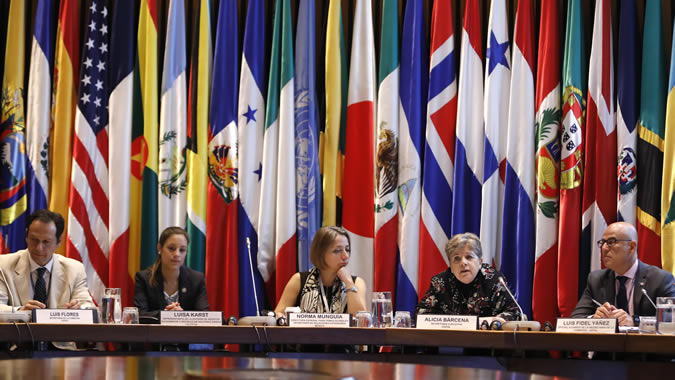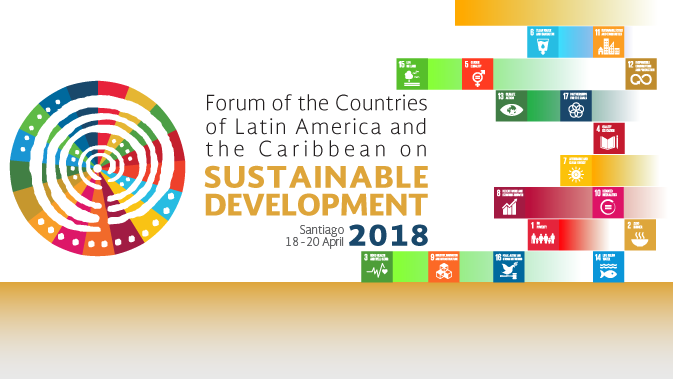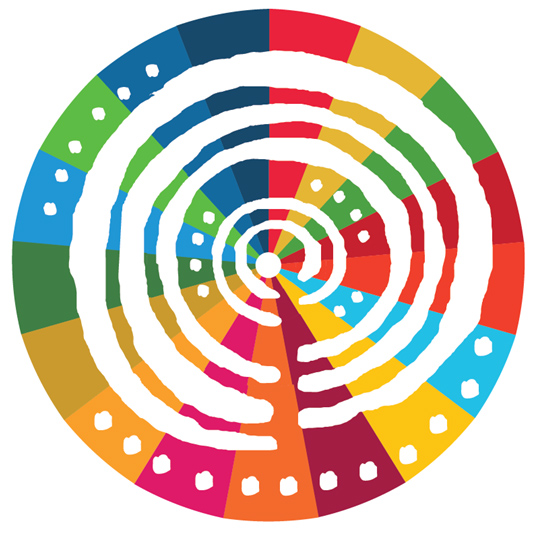Active Participation of Civil Society is Indispensable for Fulfilling the 2030 Agenda in the Region
Representatives of citizen organizations held a meeting in the framework of the Forum of the Countries of Latin America and the Caribbean on Sustainable Development, taking place at ECLAC.

Representatives of more than 200 Non-Governmental Organizations (NGOs) in various countries, government authorities and officials from international bodies agreed today at ECLAC that the active participation of civil society is indispensable for adopting decisions, planning and applying the policies that foster compliance with the 2030 Agenda for Sustainable Development in Latin America and the Caribbean.
At this gathering of civil society – prior to the second meeting of the Forum of the Countries of Latin America and the Caribbean on Sustainable Development, which will be held on April 18-20 at ECLAC’s headquarters in Santiago, Chile – participants dialogued about the importance of the inclusion of citizens in all the regional and global processes and forums related to accountability, international cooperation and fulfillment of the sustainable development targets.
The meeting, organized jointly by the government of Mexico (in its role as the country exercising the Forum’s presidency) and the Economic Commission for Latin America and the Caribbean (ECLAC), was inaugurated by Alicia Bárcena, Executive Secretary of the United Nations regional organization; Norma Munguía, Director General for Global Affairs at Mexico’s Foreign Affairs Secretariat; and Miguel Santibáñez, Executive Secretary of ACCION, the Chilean Association of NGOs.
In her welcoming remarks, Alicia Bárcena warned about the increase in citizen distrust toward institutions (75% of Latin Americans have little or no trust in them), the deterioration in the relationship with public services (especially in education and health), the rise in corruption in the region, and the fear regarding political and economic uncertainties at a global level. All of these problems have been overshadowing the importance that the 2030 Agenda should have in the public debate, she said.
“The 2030 Agenda is a civilizing agenda and should be our horizon. We cannot allow it to vanish from the political sphere. It must transcend governments and become state policy,” the senior United Nations official underscored.
For this to occur, “it is indispensable that civil society get involved in sustainable development. That is why we are proud that your voice is already being heard in some processes of great importance, such as the Regional Agreement on access to information, public participation and justice in environmental matters (Principle 10), recently approved by various countries,” Bárcena highlighted.
She added that throughout this week of the Forum, participants will analyze what the big problems are that must be tackled and how civil society organizations can serve as a guide and indicator of what is being done in their countries, “so they can orient us to bolster our work and make governments see that the 2030 Agenda is a priority, it is necessary, above all as a roadmap for reducing the inequality that afflicts the region,” she indicated.
Finally, Bárcena invited civil society representatives to join forces to arrive at the United Nations High-level Political Forum (to be held next July in New York) with a joint regional position that serves as the region’s contribution to the 2030 Agenda.
Meanwhile, Norma Munguía emphasized that civil society involvement both in the negotiations of the 2030 Agenda as well as in its implementation is fundamental. “The real implementation of the Agenda is not the same for governments if there is no significant participation by all of you. Civil society has played a very important role, allowing for priority issues to be included in the 2030 Agenda from the time of its design,” she added.
Munguía explained that the Agenda is a multi-actor issue, where, in addition to civil society, the private sector as well as others must participate. She highlighted that by July of this year, 19 countries of the region will have presented their Voluntary National Reviews (VNRs) about progress made on the Agenda’s goals to the UN High-level Political Forum. In addition, she indicated that 20 countries have already established high-level cross-sector institutions to coordinate implementation of the 2030 Agenda and that civil society participates in many of these mechanisms.
Miguel Santibáñez, meanwhile, declared NGOs’ willingness to build an institutional mechanism for participation and for linking civil society, ECLAC and other bodies, with horizontal dialogue that enriches our democracies.
“However, we note with concern how limited the indicators of the 2030 Agenda are, particularly in the area of inequality. In addition, the mechanisms for implementation of the Agenda in national governments and also in the United Nations, in particular the High-level Political Forum, are very limited in terms of citizen participation. Citizen participation practically does not exist. In our view, it is not possible to implement the 2030 Agenda without the participation of the citizenry,” he stressed.
In parallel to this meeting of civil society, also taking place at ECLAC’s headquarters was a seminar on the Sustainable Development Goals (SDGs) and their follow-up in the Gender Equality Observatory for Latin America and the Caribbean. Participants in this gathering included Alicia Bárcena; Janeth Camilo, Minister of Women of the Dominican Republic; Lara Blanco, Deputy Director of the Regional Office of the United Nations Entity for Gender Equality and the Empowerment of Women (UN Women); and Mario Cimoli, ECLAC’s acting Deputy Executive Secretary, among other prominent figures.
At this seminar, attendees exchanged the analytical and methodological experiences of the Gender Equality Observatory and its contribution to the Regional Gender Agenda and to the 2030 Agenda.
“SDG 5 of the 2030 Agenda is dedicated to gender equality, but we at ECLAC think it is very important to look at the 17 goals, because all of them should have a gender perspective. This Observatory must look not only at the specific case of women, but at the whole range of obstacles and problems that they face in the various exercises of their autonomy, in its three forms: economic, physical and political. We are interested in discovering what are the hindrances to economic autonomy that do not allow women to have better remuneration, greater productivity, and above all, to not be discriminated against, and how can we achieve that parity,” Alicia Bárcena stated during the seminar.
Minister Camilo praised the work that ECLAC’s Observatory has been doing, above all its importance in gathering and analyzing the data that countries’ varied public policies produce. “For women the creation of this regional framework of indicators on gender equality has been important, and undoubtedly it will chart the path for the attainment and follow-up of the 2030 Agenda, the main pillar of which is to not leave anyone behind. This is the relevance of ECLAC, through the Observatory, accompanying our countries in the follow-up to and compliance with the indicators at a national and regional level and in the creation of mechanisms for progress for our governments,” the Dominican authority said.
Related event
Related content

ECLAC Will Host Second Meeting of the Forum of the Countries of Latin America and the Caribbean on Sustainable Development
The meeting will be held on April 18-20 at the United Nations regional organization’s central headquarters in Santiago, Chile.

How to Follow the Second Meeting of the Forum of the Countries of Latin America and the Caribbean on Sustainable Development
All panels at the meeting will be broadcast live April 18-20. The invitation, on social networks, is to participate in the debates using hashtags #ForoALC2030 and #ForumLAC2030.
Related link(s)
Country(ies)
- Latin America and the Caribbean
Contact
Public Information Unit
- prensa@cepal.org
- (56 2) 2210 2040

